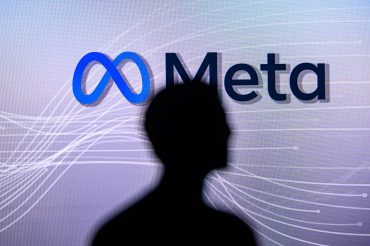
Meta Wins AI Copyright Lawsuit Against Silverman and Coates
6 minute read

Federal court ruling enables AI companies to train models on copyrighted books without author permission under fair use doctrine
Key Takeaways
- Meta wins copyright lawsuit as US District Judge rules authors including Sarah Silverman and Ta-Nehisi Coates failed to prove AI training on their books caused market harm under fair use doctrine.
- Second AI industry victory this week following similar ruling for Anthropic, signaling judicial trend toward recognizing AI training as transformative use of copyrighted materials.
- Legal uncertainty remains as judge emphasized ruling is case-specific and does not grant blanket immunity to AI companies, with future cases potentially succeeding with stronger evidence of market harm.
Introduction
Meta secures a pivotal legal victory in its battle over AI training practices, as a federal judge dismisses copyright claims from prominent authors who accused the tech giant of illegally using their books. US District Judge Vince Chhabria ruled that authors Sarah Silverman, Ta-Nehisi Coates, and others failed to demonstrate that Meta’s use of their copyrighted works to train AI systems caused market harm.
The San Francisco court’s summary judgment represents the second major win for the AI industry this week, following a similar ruling favoring Anthropic. Judge Chhabria determined that Meta’s AI training fell under the fair use doctrine, which permits copyrighted material usage without owner permission under specific conditions.
Key Developments
The lawsuit, filed in 2023, centered on Meta’s alleged use of pirated books to train its AI system Llama without authors’ permission or compensation. Plaintiffs claimed Meta violated copyright law by incorporating their works, including Silverman’s memoir “The Bedwetter” and Junot Diaz’s Pulitzer Prize-winning novel “The Brief Wondrous Life of Oscar Wao,” into its training datasets.
Judge Chhabria issued a summary judgment, deciding the case without jury involvement after determining the authors provided insufficient evidence of market dilution. The court found Meta’s use transformative, meaning the AI models did not merely reproduce the original works but created new applications.
Despite acknowledging potential illegality in using copyrighted materials for AI training without consent, the judge emphasized that fair use protections apply when certain conditions are met. The plaintiffs failed to convince the court that Meta’s copying harmed the market for their books, a crucial factor in copyright violation determinations.
Market Impact
The ruling reduces immediate copyright liability risks for Meta and other AI firms, preserving their ability to scale AI products without incurring significant licensing costs. This legal victory eliminates potential billion-dollar damages that could have fundamentally altered AI development economics.
Generative AI projects to add trillions of dollars to the global economy over the next decade, making the ability to train on copyrighted content without licensing fees financially critical. According to The Guardian, tech giants are aggressively defending their practice of training large language models on vast internet data collections under fair use doctrine.
Investors view this outcome as a positive signal for AI stocks, reducing perceived legal headwinds in the short term. The ruling provides temporary legal cover for continued AI development with minimal friction from copyright concerns.
Strategic Insights
The decision establishes a precedent favoring transformative AI applications over traditional copyright protections, potentially reshaping how courts evaluate technology sector fair use claims. Tech companies gain stronger defensive positioning in ongoing litigation while content creators face diminished leverage in demanding compensation for AI training usage.
Judge Chhabria’s ruling specifically noted that Meta’s AI models transformed the original works rather than simply reproducing them, creating a framework other AI companies may leverage in similar cases. This transformative use standard becomes crucial for distinguishing legitimate AI training from copyright infringement.
The judgment highlights the evolving tension between innovation incentives and creator rights in the digital economy. While AI firms celebrate reduced regulatory friction, content creators confront weakened protections for their intellectual property in AI applications.
Expert Opinions and Data
Judge Chhabria voiced concerns about generative AI’s potential to flood markets with vast quantities of creative content, noting this shift could significantly disrupt traditional creative incentives. “This ruling does not stand for the proposition that Meta’s use of copyrighted materials to train its language models is lawful,” he clarified, emphasizing the decision’s limited scope.
A lawyer representing the authors expressed disagreement with the outcome, citing an “undisputed record” of copyright breaches by Meta. Meanwhile, Meta’s spokesperson welcomed the ruling, affirming fair use’s significance in developing transformative AI technologies.
District Court Judge William Alsup, ruling in the separate Anthropic case, determined that AI model training on books constituted transformative fair use but noted this did not justify blanket protection for downloading millions of copyrighted works. Legal experts emphasize that fair use defenses depend heavily on case-specific details, with some industries potentially having stronger arguments than others.
Conclusion
Meta’s legal victory provides significant but limited protection for AI development practices, establishing transformative use as a viable defense while maintaining uncertainty around future copyright challenges. The ruling creates favorable conditions for continued AI innovation without resolving the broader tension between technological advancement and creator rights.
Multiple active lawsuits against technology companies, including The New York Times suing OpenAI and Microsoft, ensure the legal landscape remains unsettled. The business environment currently favors AI development, but companies must prepare for evolving legal and regulatory frameworks as courts refine fair use applications in artificial intelligence contexts.





